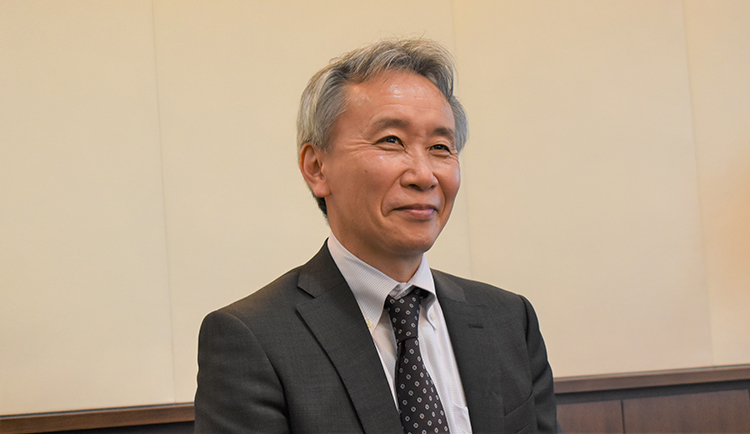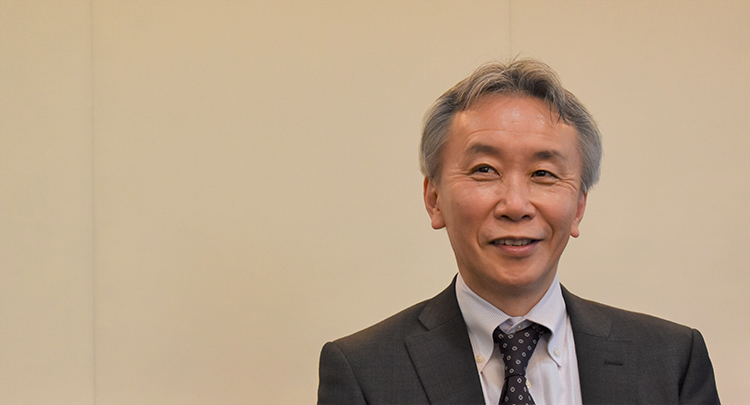International Crises Highlight the Importance of International Cooperation in Africa: Looking ahead to TICAD 8
May 11, 2022
This year's Tokyo International Conference on African Development (TICAD) 8 will be hosted by Tunisia in August 2022, the second time since 2016 that an African country will serve as host since TICAD VI in Nairobi, Kenya. It takes place as the international community fights an ongoing battle against COVID-19, supports Ukraine in its defense against Russian invasion, and assists over five million displaced Ukrainians. The eighth edition of the Tokyo International Conference on the Development of Africa will be an opportunity to demonstrate the ongoing commitment of the International Community in general, and of the Japanese Government in particular, to the African Continent. "I believe that the present time for Africa is similar to the period immediately after the Cold War when TICAD I took place," said KATO Ryuichi, Vice President of the Japan International Cooperation Agency (JICA), "and for that reason it is very meaningful to reaffirm the importance of Africa in times like these."

KATO Ryuichi, Vice President of the Japan International Cooperation Agency (JICA)
The Government of Japan held the first TICAD in 1993, just after the end of the Cold War. The superpower rivalry between Moscow and Washington brought attention to Africa with efforts to win the hearts and minds of its people. Once it ended, indifference emerged, with aid and assistance from the developed world shifting away from the continent.
Japan's three decades-long commitment to development and stability in Africa has roots in postwar Japan, where the principles of development cooperation were spelled out in the preamble to the Japanese Constitution. Kato: "When I speak at various places, I tell people that our philosophy of development cooperation is right there. It says that Japan wants to occupy an honorable position in the international community by maintaining peace and eliminating tyranny and subjugation. I believe that this is the basis of Japan's basic foreign policy, including its development cooperation."
Given the historical bedrock of development cooperation, it is no wonder that the idea for TICAD was made in Japan. Prime Minister Morihiro Hosokawa told the TICAD I participants in 1993: "If we are to accept the inevitability of increasing global interdependence, then we must accept that the challenges facing Africa squarely confront the international community as well. I hope that during the two-day discussions the African countries express their determination to purse self-help efforts, and that their development partners show and equally determined commitment to support these efforts."
TICAD I set the standard for prioritizing ownership and partnership. Ten years later at TICAD III, the concept of "human security" was introduced, which would become a key part of Japan's diplomatic vision. Japan's basic policy of cooperation with Africa was established as based on three pillars: human-centered development, poverty reduction through sustainable economic development, and the consolidation of peace.
The Japanese government hosts TICAD across a wide spectrum of participation that includes multiple stakeholders active in Africa. Co-organizers such as United Nations, United Nations Development Programme (UNDP), World Bank and African Union Commission (AUC) join along with private sector executives, heads of state, and civil society members. In 2019, TICAD 7 welcomed over 10,000 participants, 42 African leaders from 53 African countries, 52 development partner countries, 108 heads of international and regional organizations, as well as civil society and private sector partners.

In 2019, TICAD 7 welcomed over 10,000 participants, 42 African leaders from 53 African countries, 52 development partner countries, 108 heads of international and regional organizations, as well as civil society and private sector partners.
Over 30 years, Japan's commitment to African development through co-hosting TICAD every 3-5 years is unprecedented, and has become a milestone in strengthening Japan-Africa relations. Through the TICAD process, Japan has been supporting African-led development. At the TICAD III in 2003, Japan called upon the international community to support the New Partnership for Africa's Development (NEPAD), a development program of African Union (AU). Since then, JICA has continued to work closely with NEPAD and its successor AUDA-NEPAD, the AU's development agency.
As a forum for stakeholder dialogue on development that leads to direct action to improve lives, TICAD initiatives result in a myriad of community and business projects, including quality of life improvement through ensuring access to safe drinking water, improving access to primary and secondary schools and healthcare and medical facilities. One particularly successful TICAD initiative is the Coalition for African Rice Development (CARD), a collaborative framework that has mobilized concerted efforts from African countries and international organizations that has achieved an ambitious target of doubling Africa's rice production between 2008 and 2018.
TICAD's importance in international development is that it has never been operated as a donor forum designed to further old stereotypes about powerless recipients. Since the beginning, Japan has sought to be a reliable friend and partner to Africa in mutual development efforts beyond the donor-recipient model of the past. It does this through a philosophy of development that promotes the importance of African local leadership, ownership, and partnership.

JICA Vice President Kato describes Japan's philosophy toward TICAD as a continual dialogue: "Japan and Africa are constantly continuing their dialogue on development through this process. Japan is learning from Africa through this process and Africa is also learning from Japan. We learn from each other and get to know each other through dialogue. Through this process, we will build a relationship of mutual trust."
Africa in 2022 faces many challenges, including the continuing effects of the COVID-19 pandemic, and the disruption to economic systems and supply chains caused by the invasion of Ukraine. Amidst these, Japan confirms its commitment to working together with African government leaders, African civil society, and international stakeholders to utilize technology, innovation, and digital transformation to ensure human security and sustainable development. The spirit of solidarity and commitment to common purpose remains the spirit that will take place at TICAD 8.
Related Links
- TICAD 8 Looks at Opportunities to Deliver Results on an Individual Level for Post-Corona Africa (May 18, 2022)
- The COVID Crisis has Highlighted the Importance of "Ownership" During Times of Instability (June 2, 2022)
- Three Decades of Promoting Ownership and Partnership: A Look at the History of TICAD (July 14, 2022)

